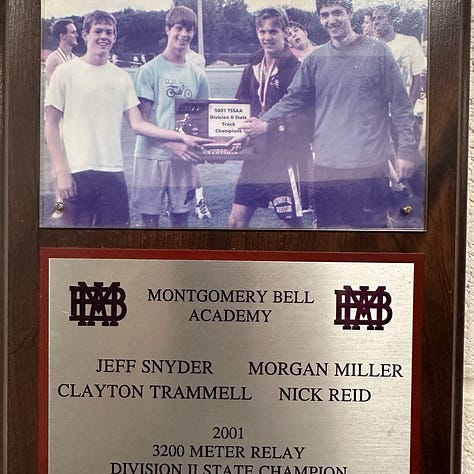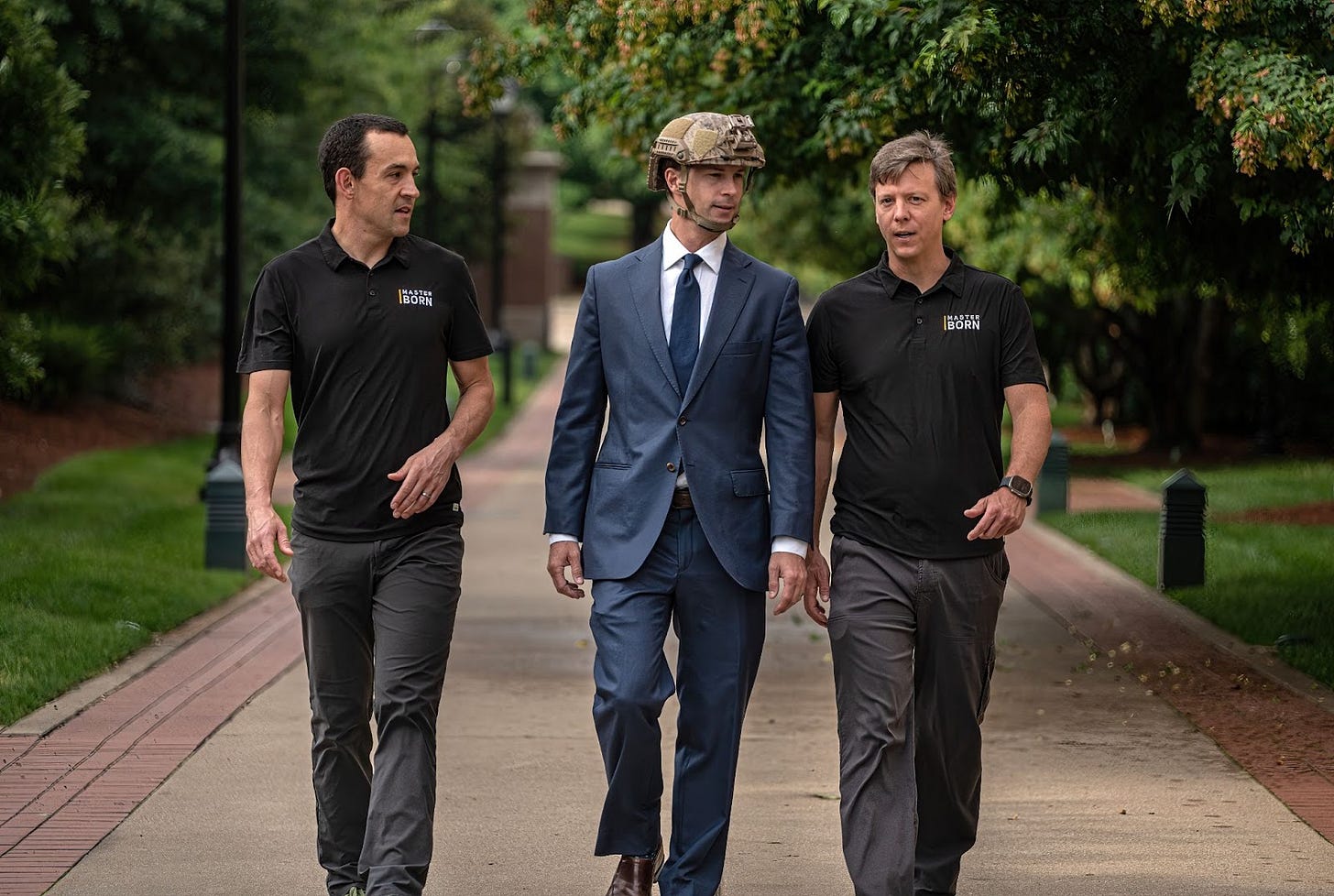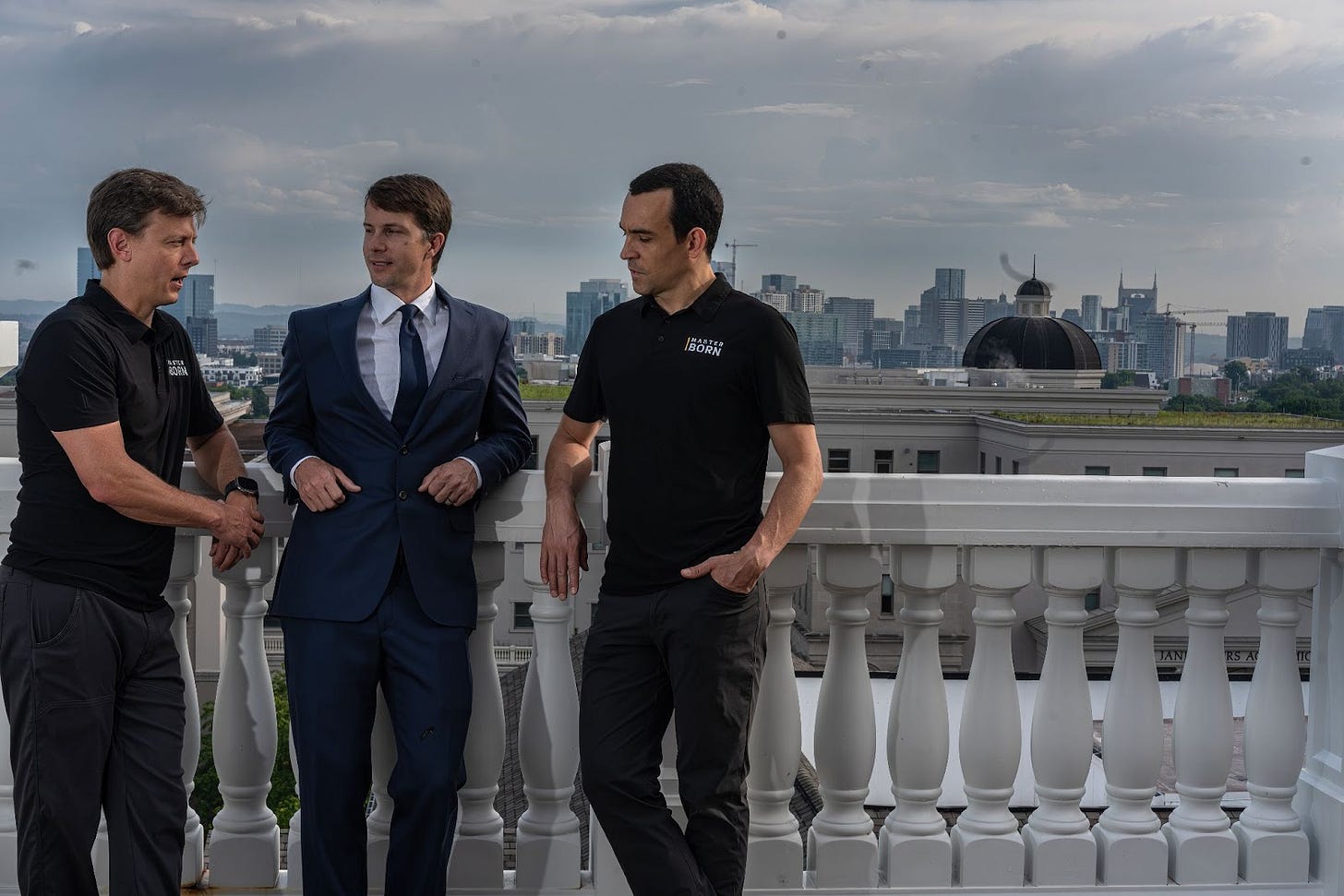Battlefield to Business: Navy SEAL and Nashville software firm launch tech accelerator
“Entrepreneurship is the realization of the freedom we fought for,” says Clayton Trammell

Clayton Trammell is tough. The retired Navy SEAL completed nine tours overseas. During one of those deployments, Trammell took a bullet for our country. He was awarded a purple heart for his heroic act.
But one of Trammell’s toughest battles was far from the Middle East. It was here at home. Like many ex-military, the former seal struggled to figure out his next mission. Transition programs offered employment opportunities, but he wasn’t interested in climbing the corporate ladder.
After years of taking orders, self employment seemed attractive. In 2021, he decided to use his battlefield experience to build a consulting business.
Now Trammell is out to help other seals become their own boss. He isn’t going at it alone. MasterBorn is joining the mission. The SEAL and software development firm are launching an accelerator to turn former naval special forces members into startup founders.
An elite partnership
“As a SEAL, I was fortunate to call the top 1-percent of the military teammates,” Trammell tells TENNBEAT. “I’m partnering with MasterBorn because they are the tech industry equivalent.”
The Music-City software company has engineered three unicorns — Outside, ClickFunnels and Medable — a feat less than 1-percent of venture backed startups achieve.
Two of Trammell’s most trusted comrades, sit at the helm of the company — Gray Skinner and Morgan Miller. The Nashville natives knew Trammell long before he enlisted. They were high school track teammates.



Trammell ran the idea by the two last fall, and from there it was full steam ahead.
The accelerator
Aptly named Privateers — a Naval term for a private ship commissioned by the U.S. navy to engage in combat — the six month accelerator will arm ex-seals with the entrepreneurial knowledge and network to start and scale a tech business.

Skinner says the first four months will serve as a crash course in entrepreneurship. Each month will be centered around a specific area of expertise:
Month 1 - Idea and Validation
Month 2 - Business Model Development
Month 3 - Product Development
Month 4 - Funding and Investment
Instructors aren’t ex military, but tech executives. Skinner and Miller recruited heavy hitters from their Rolodex of industry contacts.
Participants will meet virtually once a week for classroom style instruction. Outside instruction hours, seals will ideate on their own product and business plan. Mentors will work with them 1:1 to provide practical feedback.
Once instruction comes to a close, program participants will pitch their ideas to a panel. Skinner and industry executives will assess the viability of the potential product.
Is it solving a problem? Is the problem worth solving? Is it scaleable? Will investors open their wallet?
Ideas deemed investable will enter into MasterBorn’s “Phase 0”. It’s their dressed up term for the software development design phase. At the end of this 6-8 week period, the SEALs will have a proper prototype of their product.
“This will enable them to test their product with potential customers, gain feedback and adjust the design accordingly,” says Miller. “MasterBorn will work them to refine the product, before connecting them to potential investors.”
There will be no man left behind. If a SEAL’s idea isn’t selected, he will have the opportunity to jump on board one of the businesses that was selected.
Skinner says the first cohort will start in September. Trammell will recruit interested participants from Mandatum — a national nonprofit that seeks to connect naval special forces to the tools and resources needed to transition back into civilian life.
“There are seals who choose to transition into more traditional career paths,” says Trammell who chairs the organization's board. “There are also many who are interested in entrepreneurship, but they need help translating their experience into the industry.”
Vets are pre-vetted talent
Skinner says seals are natural startup founders. After all, entrepreneurship is after all adapt, improvise, overcome.
“We are talking about the top 1% of the military,” Skinner says. “They know how to execute and are comfortable operating in high pressure environments that are constantly forced to make decisions with incomplete information.”
Miller reiterates Skinner's sentiment. He sees the vets as pre-vetted founders.
He points to one of Trammell’s achievements. Since 2001 less than 50 service members have received a Naval Cross — “the navy’s second highest award for sailors and marines who distinguish themselves for extraordinary heroism in combat with an armed enemy force”. Trammell is one of them.
“More people have been to space in that time than have received that award,” says Miller. “Special forces members are disproportionately suited to the sweat and toil of entrepreneurship.”
Statistics support their assertions. According to the National Veterans Foundation, veteran owned businesses are 80-percent more likely to succeed than non-veteran owned businesses.
Veterans don’t just make better business owners. They are better bosses — or at least more generous ones. Another study found veterans pay their employees an average of 30-percent more than non veteran-owned businesses.
Despite the high success rates and salaries, the number of veterans becoming entrepreneurs has decreased dramatically over the last five decades.
Nearly 50 percent of World War II veterans owned and operated businesses upon returning home, according to research from the Institute for Veterans and Military Families at Syracuse University. In 2023, veterans represented only 10.7-percent of the new entrepreneurs in the United States.
The fall can’t be attributed to a single issue. Some studies cite an increase in the number of civilian transition programs for vets while others say the barrier to become an entrepreneur is far steeper than it once was.

Regardless of the reason, the trio is committed to creating opportunities for former special forces because as Trammell says, “Entrepreneurship is the realization of the freedom we fought for.”





